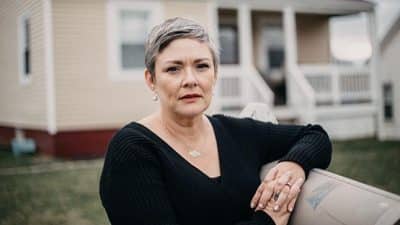
[email protected]
Three bushmen show up at the U.S. consulate in Lagos, Nigeria, after having been recruited to come to America to help the Frontier Culture Museum in Staunton build authentic mud huts for a 1700s-era West African compound that will help the museum tell the story of the colonial African slave trade.
It’s important to remember two key facts from above. The men were recruited for this endeavor, and they were recruited because they are natives to communities in Nigeria where the prevailing home architecture involves mud huts. Which is to say, they don’t exactly have the economic means to be traveling the world, one, and two, they don’t speak any English.
So naturally, when they show up at the consulate at the appointed hour, everything that can go wrong does, and the short of the story is that they’re not coming now, and probably won’t be.
On the one hand, Frontier Culture Museum executive director John Avoli is “heartbroken.” On the other hand, he’s not as fired up mad about what happened as he could be, to his credit.
“Now, I’m not being patronizing here in any way, but imagine, Chris, yourself, being an interviewer in Lagos, the American consulate. Now, these three bushpeople were brought from where they’re from to Lagos. These guys may have never been to Lagos. They may have been in a 10-mile radius of where they’d been born. So they get to Lagos, and they do these interviews one by one. Imagine being the interviewer, and these three guys walk in. What the hell’s going on? Can you imagine?” Avoli said to me this morning.
The Frontier Culture Museum had worked hard behind the scenes to make the effort go more smoothly than it turned out, asking for letters of support to be submitted to the consulate ahead of the arrival of the men, identified in an article in the Richmond Times-Dispatch as Thomas Chukwujekwu Ikegbunam, Pius Chukwunwike Anigbogu and Ambrose Nwancho Nkwuda. Avoli told me that he suspects that those letters, including one from the office of U.S. Sen. John Warner, R-Va., made it to the consulate, but had not been shared with the interviewers who ultimately had to make a decision on whether to allow the men access to the U.S.
The story has received national and international attention, which has Avoli wondering if there might not be some movement afoot that might land the men in Staunton after all.
“After that article today in the Richmond Times, the phone’s been ringing off the hook, and I’ve had e-mails, and I even had ABC News call a litlte while ago. So who knows?” Avoli said.
But in the meantime, the show at the Frontier Culture Museum is going on, albeit with a few alterations to the list of players. A team led by former Nigerian museum curator Umembe Onyejekwe will lead the effort to build the West African compound in Staunton.
“We’re disappointed. We’re bleeding a little bit, but as soon as Umembe and the rest of them get here, we’re fine,” Avoli said.
“We can get this done. What we’ll miss is the authenticity of having people build these huts who actually live in them. And for a museum, that’s very important.”










